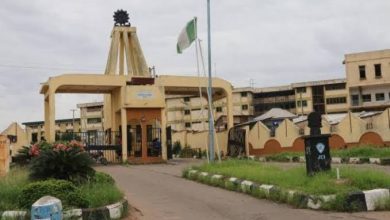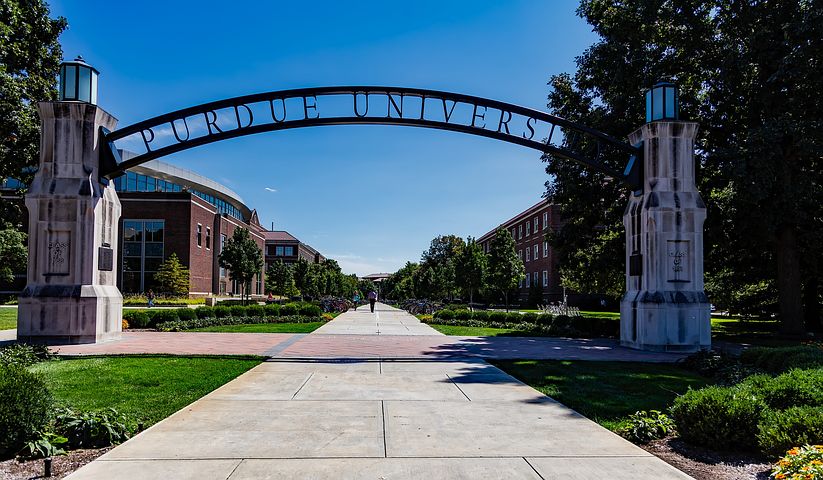Best Universities to Study Geophysics in Nigeria
The study of the physics of the Earth and its environs in space is known as geophysics. Exploration of the Earth’s innards utilizing physical properties that can be measured at or above the surface of the planet and mathematical models that can forecast such properties is one focus.
After three or four years of study at Anchor University, one can receive a Bachelor of Science (B.Sc.) in Applied Geophysics.
Best Universities to Study Geophysics in Nigeria

The following are the best universities to study geophysics in Nigeria:
1. University of Lagos
The University of Lagos should be at the top of your list if you want to study geophysics in Nigeria. Located in the heart of Lagos, it has educated and produced many of the top geophysicists in the country.
- Unilag offers both undergraduate and graduate degree programs in geophysics, with concentrations in areas like exploration geophysics, environmental geophysics, and geophysical engineering. The curriculum covers essentials like seismic methods, gravity and magnetic methods, electrical and electromagnetic methods, and remote sensing.
- Unilag has a dedicated Department of Physics with many experienced professors and lecturers in geophysics and related fields. You’ll learn from the best and have opportunities to participate in impactful research projects.
- Being in Lagos provides many internship and job opportunities at major oil companies headquartered there. Unilag’s career center can help connect you for work experience, and many students receive job offers before they even graduate.
- Modern facilities like laboratories, computing equipment, software, and field equipment give you valuable hands-on experience. Unilag also has affiliation agreements with institutions around the world for study abroad and exchange programs.
READ ALSO- Best Universities to Study International Law in Nigeria
2. Federal University of Technology, Akure
When it comes to studying geophysics, FUTA should be at the top of your list. They offer specialized programs for geophysics students to give you a solid foundation in this field.
FUTA’s Department of Geology and Mineral Sciences has B.Sc., M.Sc., and Ph.D. programs in geophysics. The curricula focus on exploring the physical properties of the earth and how they relate to plate tectonics, earthquakes, and resource exploration. Some of the courses you can expect include:
- Applied Geophysics: Covers gravity, magnetic, seismic, and electrical methods for mineral and groundwater exploration.
- Petroleum Geology and Geophysics: Teaches you how to explore for oil and gas.
- Environmental Geophysics: Focuses on using geophysical techniques to assess pollution and other environmental issues.
FUTA frequently collaborates with companies in the mining, oil, and environmental sectors. This means opportunities for internships, research collaborations, and career placements after you graduate. The school also hosts regular seminars and conferences where students can network and learn from leaders in the field.
With its specialized programs, industry connections, and focus on practical skills, FUTA provides geophysics students with a learning experience that can lead to rewarding careers. If you’re passionate about unveiling the secrets of the earth, this is the place to start your journey.
3. University of Nigeria, Nsukka
The University of Nigeria, Nsukka offers an affordable, high-quality geophysics degree program. Located in southeastern Nigeria, UNN was established in 1955 and ranks among the top universities in West Africa.
The tuition for the Bachelor of Science in Geophysics at UNN is very affordable compared to private universities in Nigeria. You’ll pay around ₦45,000 per semester for Nigerian students, which includes some lab and course fees. For international students, tuition is around $2,500 USD per semester. UNN also offers scholarships and financial aid for geophysics students based on merit and need.
The Department of Physics and Astronomy at UNN has several professors with PhDs in geophysics, geochemistry, and related fields. They bring a wealth of research and practical experience that enriches the geophysics curriculum. Students benefit from small class sizes and close relationships with professors.
The geophysics program at UNN covers a wide range of topics like exploration geophysics, geophysical data processing, geophysical instrumentation, and geophysical modeling. Students take courses in geology, mathematics, physics, and chemistry as well. The program culminates in a final-year research project to gain hands-on experience.
READ ALSO- Best Universities to Study Literature in Nigeria
Conclusion
FAQS
Here are some of the most frequently asked questions and their answers:
1. What is geophysics?
Geophysics is the study of the Earth using physics, specifically the physical properties of rocks, minerals, soils, water, and the Earth’s interior. Geophysicists use tools like seismic waves, gravity, electromagnetism, heat flow, and remote sensing to explore the subsurface and better understand the Earth.
2. What do geophysicists do?
Geophysicists explore natural resources like oil, natural gas, water, and minerals. They also study the Earth’s structure and processes to better understand earthquakes, volcanoes, plate tectonics, and climate change. Many geophysicists work in the energy industry, while others work for scientific research institutions or as professors at universities.
3. What degree do I need to become a geophysicist?
Most geophysicists have at least a bachelor’s degree in geophysics, geology, physics, math, or engineering. Graduate degrees (M.S. or Ph.D.) in geophysics or a related field are common for research and teaching positions. Coursework typically includes geology, physics, math, and geophysical techniques.









